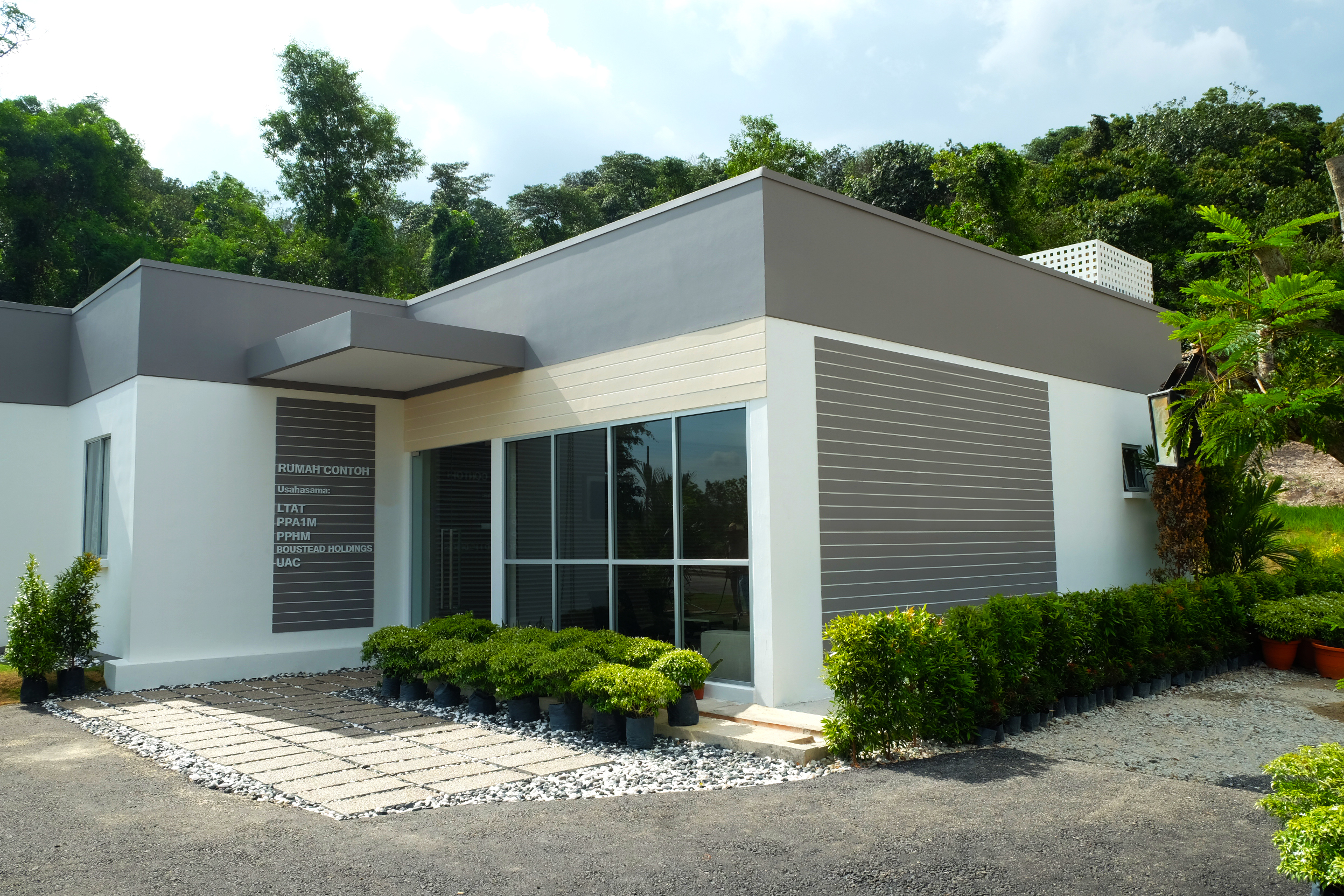The construction industry is experiencing a paradigm shift towards more intelligent, faster, and more sustainable building methods. Traditional construction processes often face challenges like long project timelines, high labour costs, and inefficiencies in material use. As a result, the need for innovative solutions that streamline construction and deliver high-quality results has never been more crucial. One such innovation is the Industrialised Building System (IBS), which incorporates pre-fabricated components for faster, more efficient construction.
Among the key features of IBS, lightweight walls such as UAC SolidPanel stand out as a game changer in modern construction. These prefabricated wall panels are faster to install and provide cost savings, durability, and improved sustainability. In this article, we’ll explore the role of lightweight walls and how they revolutionise construction practices.
What Are Lightweight Walls?
Lightweight walls refer to prefabricated wall panels made from cement boards, plasterboard, lightweight concrete, and other composite materials. Such an example is UAC SolidPanel. These wall panels are designed to be lighter than traditional construction materials like brick and blocks, making them easier to transport and install. They also help reduce the overall weight load of the structure, enhancing energy efficiency, manpower efficiency, and cost-effectiveness during construction.
Unlike traditional methods, lightweight walls are produced off-site, ensuring uniform quality and faster installation times. These walls offer better insulation, fire resistance, and soundproofing than traditional building materials.
Advantages of Lightweight Walls
Faster Construction
The primary benefit of lightweight walls is their ability to speed up construction. Since the walls are prefabricated and delivered ready-to-install, the time required to build a structure is significantly reduced. This is especially important for large-scale projects where time is a critical factor. The reduction in construction time also lowers labour costs, making the project more cost-effective.
Additionally, using lightweight walls reduces the need for heavy machinery and complex installation techniques, further accelerating the building process. In residential or commercial projects, lightweight walls offer a much quicker path from foundation to finished structure.
Cost Efficiency
Lightweight walls can reduce costs in several ways. First, their reduced weight leads to lower transportation expenses, as fewer resources are required to move the materials to the construction site. Second, because they are easier to handle and install, labour costs are reduced. With fewer workers needed for installation and less risk of delays due to weather or other factors, builders can keep their budgets in check.
Moreover, lightweight materials result in lower foundation costs. Since the walls are lighter, there is less strain on the foundation, potentially reducing the amount of concrete or steel needed for support.
Improved Sustainability
Sustainability is at the forefront of modern construction, and lightweight walls align perfectly with this goal. These materials are typically made from recyclable components, reducing construction waste. Furthermore, they contribute to the overall energy efficiency of buildings, offering superior insulation properties that can help reduce heating and cooling costs.
Moreover, CIDB Malaysia implemented the IBS Scoring System, which measures how much prefabricated, sustainable materials are used in construction. The higher the score, the greener and more efficient the project–and prefabricated lightweight wall panels such as UAC SolidPanel has a perfect score factor of 1.0 as well.
By reducing the environmental impact of construction, lightweight walls contribute to greener buildings that align with global sustainability goals. Their energy-efficient properties make them ideal for achieving green certifications and meeting the growing demand for eco-friendly building practices.
Enhanced Structural Performance
Despite being lightweight, UAC SolidPanel wall panels do not compromise on strength or durability. The lightweight walls are designed to withstand harsh environmental conditions and maintain their structural integrity over time. They resist common issues such as cracking, warping, and fading, which can be prevalent in traditional materials exposed to the elements.
